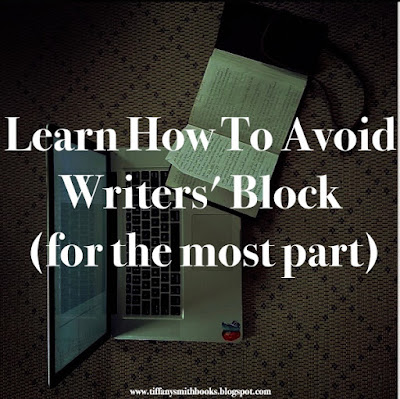 |
| Instagram @Tiffany_A_Smith_ |
Writing a novel is a complicated process. I've written one and am in the midst of trying to figure out how to go about publishing it (a story for another day). Next to plot, characters are the most important thing you have going because a plot without characters is really no story at all and a story with underdeveloped characters is equally as bad. My suggestion is that you build a character profile portfolio with all of your characters.
If you live with the struggle of only being able to build underdeveloped characters or just feel as if your character needs more spice, try answering these 20 questions about them. Even if you never even use a certain detail in the book such as so-and-so's favorite ice-cream flavor, it doesn't matter because your character has already crossed over the one-dimensional line into something better.
Creating Characters In 20 Questions:
1. If you were walking down the street and saw your character for the first time, what would be your first impression? Is he/she simply stunning or a total creeper? Has a strange walk? Emits the faint scent of lemons as you pass by?
2. What is your character's general physical appearance? In your profile, describe with lots of detail and single out the most important qualities. Does he/she have a long but off-centered nose (a possible sign that it might be broken)? Small, slender hands? A pink scar barely seen behind the ear?
3. What does your character wear? Likes to wear pink? Only wears tattered Chuck Taylors with a hole in the toe? Wears sweatshirts all the time?
4. What does your character sound like? Does he/she sound like she was raised in the streets of New York City? Is their voice pitchy or deep? Sounds like he/she smokes a pack a day?
5. Does your character accept the standards of his/her day when things go wrong?
6. Does your character make the best of his/her day?
7. What is your character's earliest most important influences? A teacher who taught the daughter of a dysfunctional family to read? A blind piano instructor who inspired a disabled student to pursue his/her dream? Even someone as simple as a favorite band or their parents.
8. What is the most important thing to your character? A physical item of possession? A significant other? A feeling?
9. What does your character fear the most? Arachnaphobia (that would be me)? Rejection? Death?
10. How does your character handle competition, defeat, and lost? Does your character fall to their knees and sob until the sun falls from the sky? Do they hold up their head high and march on with pride?
11. How does your character react towards children?
12. How does your character react in general? Does he/she become easily angered? Weepy? Overly sentimental?
13. Does your character know why he/she behaves the way he/she does or is it a subconscious thing?
14. What does your character desire the most? True love? Fame? A black belt in karate?
15. What does your character need the most?
16. What is your character's worst quality or flaw? Being a know-it-all? Overconfidence?
17.
How will your character change? Will he/she be stronger or weaker? Did your character learn a valuable lesson and if so, how will he/she use this lesson to make good?
18.
What is your character's full name?
19.
What is your character's major conflict?
And finally. . .
20.
What are the little details about your character? Favorite foods? Favorite color? Celebrity crush?
You don't have to answer all of these and you can even make your own questions but I find spending time getting to know your characters in this way is just as important as plotting. Suddenly, you'll find that they have a personality, depth, and qualities all their own. In fact, I usually even write a biography about their life starting from the day they were born up until present time in my novel.
I'll admit, when I first began writing my first novel, Caged (due to published soon), I was an inexperienced idiot and didn't create detailed character sketches, which resulted in a lot of problems, In another novel I'm writing, things went much more smoothly because I took as much time to develop my characters as my plot.
Of course, everybody does things differently, but I hope this helps you in your writing journeys as
much as it has helped me.



